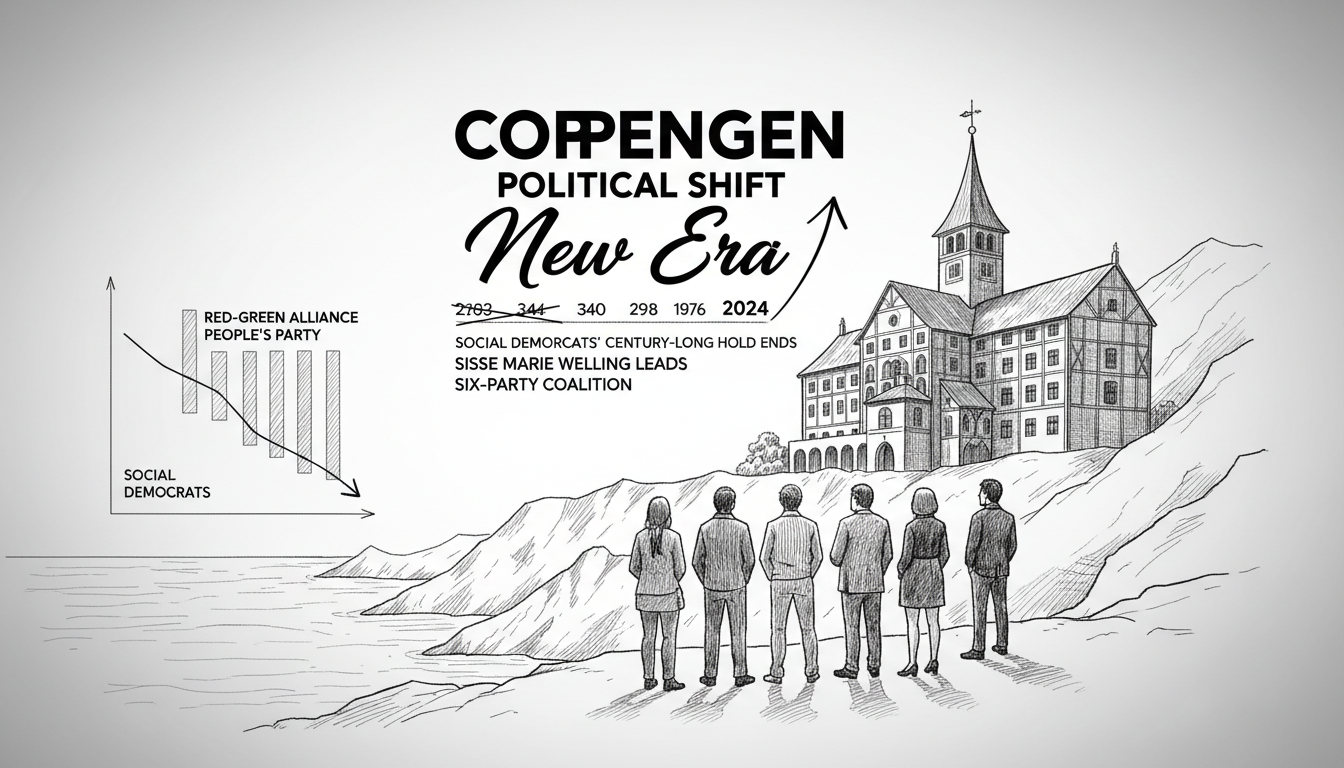Copenhagen witnessed a historic political transformation after overnight negotiations at City Hall. The Socialist People's Party (SF) secured the mayor's office, ending more than 100 years of Social Democratic dominance in the capital city. Sisse Marie Welling from SF will become Copenhagen's new mayor following a broad coalition agreement.
Welling addressed reporters at City Hall, stating she felt honored by the support from multiple parties. She emphasized this power transition brings healthy change to Copenhagen. New political forces can now influence the city's direction, she noted.
The coalition backing Welling includes six parties spanning the political spectrum. The Red-Green Alliance, Alternative, Venstre, Conservatives, Social Liberals, and Danish People's Party all endorsed her leadership. This unusual alliance demonstrates the fragmented political landscape in modern Copenhagen.
Social Democratic candidate Pernille Rosenkrantz-Theil conceded defeat earlier this morning. She acknowledged the challenging circumstances, noting she had anticipated a difficult race. Rosenkrantz-Theil confirmed she would remain at City Hall for the next four years despite not securing the top position.
The Social Democrats' decline in Copenhagen represents a long-term trend. Their support has steadily decreased since 2005 when they commanded 37.6 percent of votes. This election saw them drop to 12.7 percent, becoming the third-largest party behind the Red-Green Alliance and SF.
Political observers describe this loss as particularly damaging for national Social Democratic leadership. Party chair and Prime Minister Mette Frederiksen directly appointed Rosenkrantz-Theil as the mayoral candidate, making the defeat personally significant for the national government.
Vote distribution reveals Copenhagen's shifting political preferences. The Red-Green Alliance remains the largest party with 22.1 percent support despite a slight decrease. SF surged to second place with 17.9 percent, gaining nearly 7 percentage points since the last election.
The new city government includes several key appointments. Line Barfod from the Red-Green Alliance becomes technical and environmental mayor. Jakob Næsager from the Conservatives takes charge of children and youth affairs. Christopher Røhl from the Social Liberals will oversee culture and leisure.
Karina Vestergård Madsen from the Red-Green Alliance assumes the social mayor position. The remaining two mayoral posts will go to the Social Democrats and Venstre. Rosenkrantz-Theil must choose between health and employment portfolios, with the remaining position going to Venstre's Jens-Kristian Lütken.
This political realignment extends beyond Copenhagen. Social Democratic support has eroded nationwide, reflecting changing voter priorities and coalition dynamics. The party faces challenges adapting to urban voters' evolving expectations about governance and policy priorities.
The new coalition governing Copenhagen represents diverse political traditions finding common ground. Their ability to collaborate effectively will determine the city's direction on critical issues like climate policy, housing, and public services. All parties involved must balance their distinct priorities with practical governance needs.

